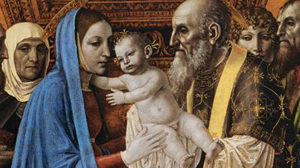Ezekiel 18:21-28
Matthew 5:20-26
Reflection:
The season of Lent takes us on a journey. This unique period of travel ends in Holy Week with the great Triduum celebration and the solemnity of Easter. Beyond the liturgical calendar and counting off the 40 days, the spiritual destination of our journey is a greater love of God and of our brothers and sisters. The prayer, fasting and alms-giving we do, or whatever Lenten practices we have chosen, are to support us in conforming our lives to the great law of love (Lk. 10:27).
In the Gospel reading today, inserted into the Sermon on the Mount, Jesus begins several “antitheses.” He first states what the people have heard from the law (do not kill, do not commit adultery, do not take false oaths, love your friends, etc.). Then Jesus says, “But I say to you…” Jesus motivates the people to go beyond a legalistic approach to religion (obedience) to a heartfelt commitment (love). We can be religiously correct by being obedient. Jesus says this is not enough for those who would follow him. His disciples need to be spiritually correct by being disciples of compassion. We aren’t out to kill anyone, but do we harbor anger in our heart? We know adultery is wrong, but do we hold on to lustful thoughts? We try to love our friends, but do we love our enemies? Do we tell the truth at all times? Jesus stretches us beyond obedience into God’s way of love.
The first week of Lent is coming to an end. Today is a good time for me to review the Lenten practices I have chosen. Are they drawing me closer to God and to one another? All the “antitheses” are not heard in today’s reading. It might be helpful to read the entire passage (Matthew 5:20-48) and ask myself if I need to change some practices to become the loving disciple that Jesus portrays in the Sermon on the Mount.
Fr. Don Webber, C.P., resides in Chicago.








